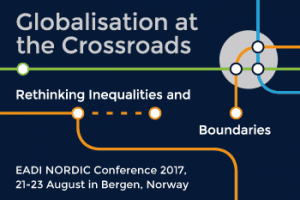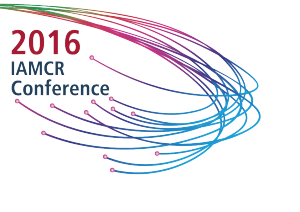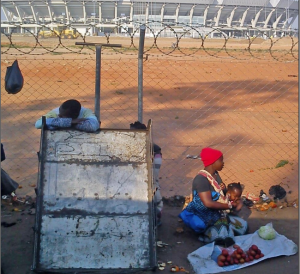New Issue of Glocal Times
Glocal Times is a web magazine published by Malmö University’s Master in Communication for Development, co-edited by Ørecomm participants Oscar Hemer, Florencia Enghel and Rebecca Bengtsson. A new issue of Glocal Times, Issue No. 20, was released last month.
“Amidst what may be described as a flurry of activity, Issue No. 20 of Glocal Times once again engages with communication for development from a threefold perspective: as a field of study, as professional practice and as an institutional project,” says Florencia Enghel when she presents the new issue.
Read her introduction to the new number below, or visit www.glocaltimes.se for the full issue.
“Nine months have passed since the publication of Issue No. 19 of Glocal Times, and in the meantime there has been plenty of activity within the field. To mention but a few examples: in November 2013, the Second Nordic Conference for Development Knowledge “Knowing Development – Developing Knowledge?”, held in Finland, included a Working Group on Communication for Development chaired by Hilde Arntsen that looked into the practice of communication of development and social change in a critical vein. In May 2014, the University of Sheffield in the UK hosted the conference Media and Governance in Latin America: Exploring the role of communication for development. On the publishing front, the Handbook of Development Communication and Social Change, edited by Thomas Tufte and Karin Wilkins with Rafael Obregón, has just been released. Pradip Thomas has recently published a chapter entitled “Theorizing Development, Communication and Social Change” in the collection Communication Theories in a Multicultural World, and Martin Scott has just written Media and Development. Malmö University’s Master’s program in Communication for Development in turn has been busy with the Glocal Classroom project and preparations for the Voice & Matter conference, to be held in September of this year, arranged by Ørecomm.
Amidst what may be described as a flurry of activity, Issue No. 20 of Glocal Times once again engages with communication for development from a threefold perspective: as a field of study, as professional practice and as an institutional project.
Three articles speak to the richness of the field of study. To begin with, Poul Erik Nielsen exemplifies and discusses the challenge of how to investigate the technological, financial, political and socio-cultural dynamics behind the development of ‘locally specific’ but ‘globally influenced’ media environments, with an eye to the link between individual and collective appropriations of the media available in specific scenarios. Next, two recent graduates from Malmö University’s Master’s program in Communication for Development introduce their respective theses. Charlotte Jenner investigates audience engagement with the novel audiovisual media genre of interactive web documentary. Combining the use of surveys, individual semi-structured interviews and focus groups, Jenner identifies modes of, and barriers to, engagement among audience samples from Norway, Sweden and the UK. Pearl Jones studies the role of the visual arts and of film among North Korean defectors/refugees. Jones explores visual representation from the combined perspective of production and consumption, supplementing her interpretation of the cases selected with interviews to artists and questionnaires to audiences.
Two articles consider varieties of the professional practice of communication for development. Gareth Benest walks us through the process of facilitating a capacity-building program in participatory video in Myanmar (Burma) and shares his reflections on the experience, which constituted the first venture into the country of InsightShare, an organization based in the UK that specializes in the use of participatory video for community development. Nubia Rojas starts from an interview with filmmaker Joshua Oppenheimer, the director of the documentary “The Act of Killing”, and considers the film’s impact in the process of social change taking place in Indonesia.
Last but not least, an article contributed by two members of the Communication for Development Team of the Food and Agriculture Organization introduces us to the Team’s goals and activities for 2014, declared by the United Nations International Year of Family Farming. Here, communication for development as an institutional project comes into view.
We hope that you will find this new issue of Glocal Times both informative and thought-provoking, and we welcome your views on the matters raised here, and your suggestions for future issues.
By Florencia Enghel, editor of Glocal Times”
 New PhD opportunities at the University of Leicester
New PhD opportunities at the University of Leicester Call for Abstracts: New Directions in Media, Communication and Sociology (NDiMS) Conference
Call for Abstracts: New Directions in Media, Communication and Sociology (NDiMS) Conference Ørecomm Team to Gather at the University of Coimbra
Ørecomm Team to Gather at the University of Coimbra “Communication and Social Change – A Citizen Perspective” Published
“Communication and Social Change – A Citizen Perspective” Published C4D Network to Sum Up Global Communication for Development Practice
C4D Network to Sum Up Global Communication for Development Practice Entering Media and Communication into Development Conferences?
Entering Media and Communication into Development Conferences? IAMCR Conference 2016: Communication for Development Highlights
IAMCR Conference 2016: Communication for Development Highlights Glocal Classroom Revisited – Storytelling & Social Change Leicester-Malmö
Glocal Classroom Revisited – Storytelling & Social Change Leicester-Malmö I EvalComDev International Conference: Call for Papers
I EvalComDev International Conference: Call for Papers Looking for Media and Communication in Development Conferences: Devres 2016
Looking for Media and Communication in Development Conferences: Devres 2016